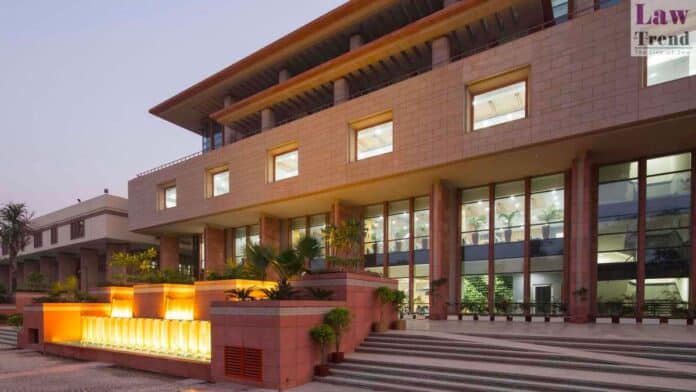The Delhi High Court has permitted the Central Bureau of Investigation (CBI) to record the testimony of 79-year-old American businessman C. Edmonds Allen through videoconferencing from the Indian Consulate in New York, in connection with the 2012 Official Secrets Act (OSA) case involving arms dealer Abhishek Verma.
A single-judge bench of Justice Sanjeev Narula passed the order while hearing the CBI’s appeal challenging the trial court’s April 6, 2023, decision, which had refused to allow Allen’s examination through video link.
In August 2012, the CBI registered a case against Verma and his associate Anca Maria Neacsu under the Official Secrets Act and the Indian Penal Code, for alleged possession of classified Ministry of Defence documents. The documents reportedly included Indian Air Force acquisition plans and minutes of Defence Acquisition Council (DAC) meetings.
The case originated from Allen’s June 6, 2012, letter to the then Defence Minister, in which he enclosed classified materials and claimed he had received them from Verma.
The trial court had dismissed the CBI’s request to record Allen’s evidence via videoconferencing, reasoning that sharing sensitive documents with a foreign-based witness could risk violating secrecy provisions and lead to unauthorised disclosure of classified material.
The CBI argued before the High Court that Allen was a material witness, having already been examined during the investigation. It maintained that the OSA does not prohibit evidence being recorded through electronic means, provided that secrecy safeguards and in-camera proceedings are ensured.
The agency also highlighted Allen’s advanced age and serious medical conditions, noting that videoconferencing was the only practical way to record his statement without jeopardising his health.
Verma’s counsel Maninder Singh opposed the plea, terming it misconceived and accusing the CBI of suppressing material facts. He argued that Allen, as a director and shareholder of M/s Ganton India Private Limited — a company set up by Verma and Neacsu in the U.S. — had been directly involved in the company’s affairs and should have been treated as an accused, not a prosecution witness.
Allowing the CBI’s plea, Justice Narula held that the OSA does not bar recording of evidence via electronic means, provided that the process is regulated with sufficient safeguards.
“While the apprehension recorded by the Trial Court, that the use of video conferencing may occasion leakage of classified material, cannot be dismissed as fanciful, yet the answer in law is not prohibition but regulation in a just and equitable manner through adequate safeguards,” the court said.
The judge noted that Section 14 of the OSA, read with Section 327 of the Code of Criminal Procedure, authorises courts to conduct in-camera proceedings and preserve confidentiality.
“OSA does not interdict the conduct of trials; it prescribes the manner in which sensitive proceedings are to be held. The proper judicial response is therefore to manage risk, while preserving the integrity of the proceeding,” Justice Narula observed in his 12-page verdict.
The High Court set aside the trial court’s order and directed that Allen’s testimony be recorded through videoconference from the Indian Consulate in New York, under strict in-camera conditions and with necessary confidentiality safeguards to ensure protection of classified information.




